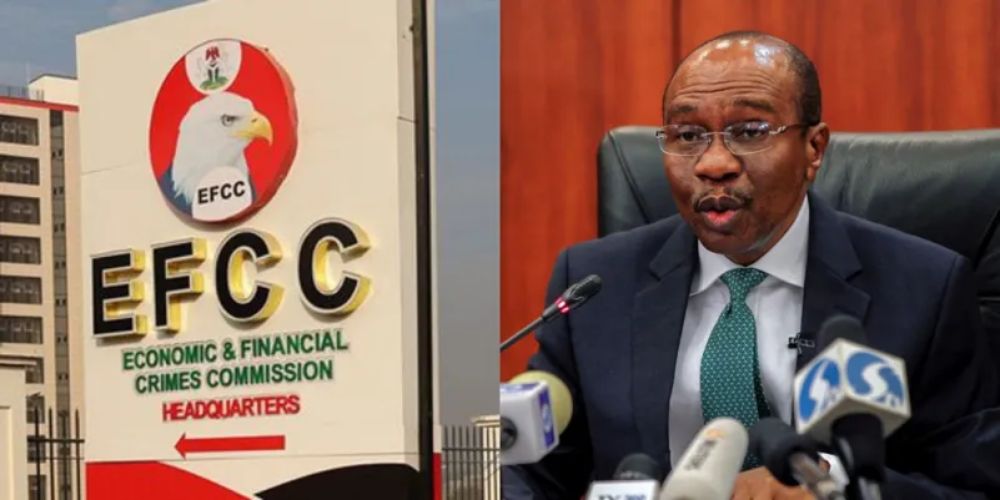In a significant development in the trial of former Central Bank of Nigeria (CBN) Governor, Godwin Emefiele, the Federal Capital Territory (FCT) High Court in Abuja has approved the Economic and Financial Crimes Commission (EFCC)’s request to allow U.S.-based witnesses to testify virtually.
Justice Maryanne Anenih made the ruling on Thursday, October 17, 2024, permitting the EFCC to present testimony from key witnesses, I.E. Obiora and Aisha Ahmed, via video platforms like Zoom. This decision marks a crucial turning point in the high-profile case, which centers on allegations of disobedience to legal directives and the controversial handling of the CBN’s naira redesign policy under Emefiele’s leadership.
The EFCC has been pursuing charges against Emefiele related to his role in the naira redesign, a policy that sparked widespread economic disruption and public outcry. The sudden currency swap left many Nigerians facing severe cash shortages, drawing intense criticism of the CBN’s implementation of the policy.
Prosecution counsel, Abass Mohammed, informed the court that logistical issues had made it impossible for the U.S.-based witnesses to travel to Nigeria for in-person testimony. He argued that despite these challenges, the witnesses’ testimonies were vital to the case and urged the court to allow virtual testimony.
After considering arguments from both sides, Justice Anenih granted the request, emphasizing the need to move forward with the trial without unnecessary delays. She also stressed that all protocols would be followed to ensure the integrity of the virtual testimonies, protecting the legal process.
Read also: LG autonomy: APC Chieftain tasks NASS on fast-track actions to ensure benefits
The defense, however, had opposed the EFCC’s motion, expressing concerns about the reliability and fairness of using virtual testimony in such a high-profile trial. Emefiele’s defense team argued that witnesses should appear in person to allow for thorough cross-examination and to ensure transparency.
Justice Anenih addressed these concerns by confirming that the defense would have the opportunity to cross-examine the witnesses virtually, ensuring that Emefiele’s rights were upheld throughout the process.
The trial against Godwin Emefiele is attracting widespread attention due to his former role as the governor of the CBN, where he led major economic reforms. The naira redesign policy, meant to introduce new currency notes and phase out old ones, caused chaos within the Nigerian economy, with many citizens unable to access cash.
The EFCC alleges that Emefiele’s handling of the policy violated legal procedures and contributed to economic instability. With the court’s decision to allow virtual testimonies, the prosecution is set to strengthen its case as the trial continues.
The trial has been adjourned to November 14, 26, December 4, 2024, and January 21, 2025. The EFCC is expected to present additional witnesses during these sessions as it builds its case against the former CBN governor.






